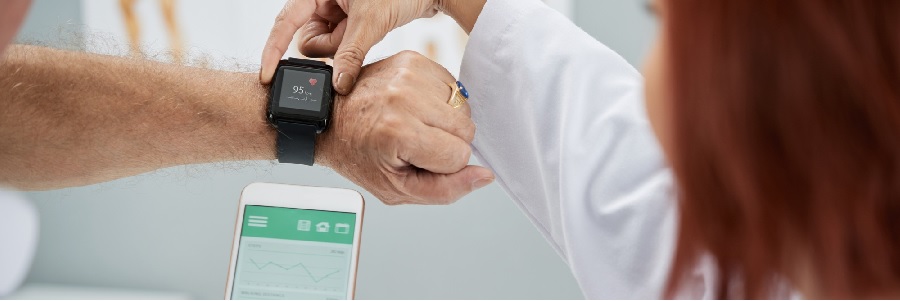Commuting to work and walking around the office to talk to coworkers helps burn calories throughout the day. But when you’re working from home, the amount of physical activity you do tends to be much less, which can negatively impact your physical and mental well-being.
Can blockchain technology revolutionize healthcare?
The top 5 benefits of cloud computing to healthcare organizations

There's no doubt that cloud computing is revolutionizing healthcare. From improving patient care to making medical records more secure, the cloud is making continues to make a big impact in the world of healthcare. Here are just a few of the benefits of using cloud solutions in your healthcare practice.
How telemedicine is transforming healthcare

Since the start of the COVID-19 pandemic, more healthcare providers have adopted telemedicine services to provide care to patients who are unable to visit a healthcare facility because of travel restrictions. And with more people working from home, telemedicine has become a convenient way for patients to connect with their healthcare providers.
How online scheduling solutions can help your healthcare business
What to consider when picking a health app or wearable tech
Here’s how hospitals can benefit from managed IT services

More and more healthcare organizations are turning to managed IT services providers (MSPs) for their IT needs. Outsourcing their IT functions enables hospitals and clinics to focus on being healthcare providers rather than IT professionals. Here are some of the best benefits of hiring one:
MSPs guarantee quick response times
Constant system uptime and availability can be a matter of life and death in the healthcare industry, which makes quick IT support response times crucial for any healthcare practice.
Getting the right EMR system for your practice
PHI best practices that all business leaders should know
Big data’s positive effects on healthcare readmission

The positive effects of business intelligence (BI) and big data analytics on healthcare management are becoming increasingly apparent — especially when it comes to reducing hospital readmission rates. Take a look at why many hospitals and clinics are beginning to embrace the potentials of data-driven business.






